The best streaming device for your TV in 2022
We compare the best streaming device you can buy for Netflix, Disney Plus, Spotify and more
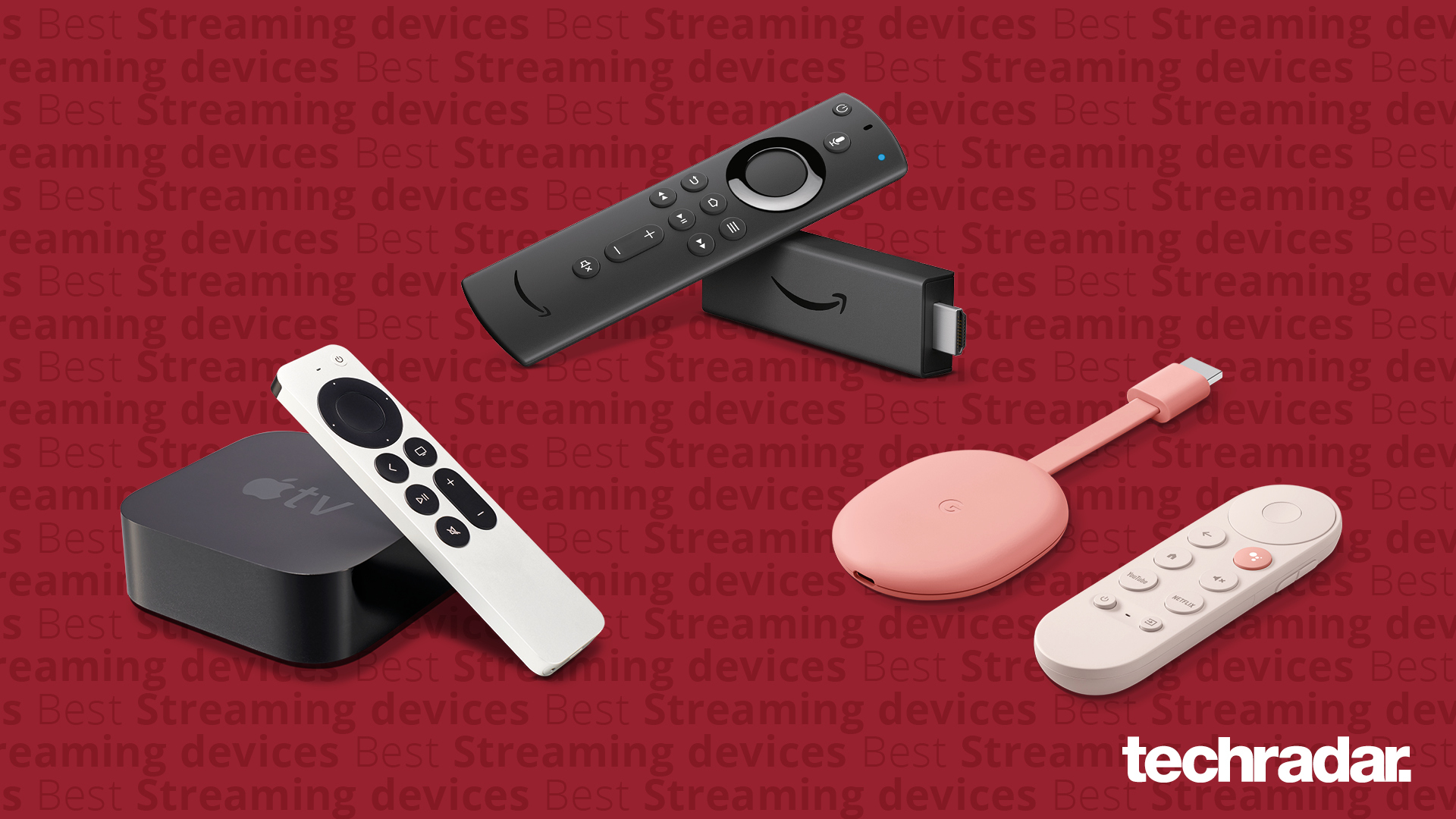
The best streaming device allows you to stream TV shows and movies to your TV via the HDMI port on the back. Sometimes called a streaming stick or media streaming device, these top streaming devices allows you to add apps to your TV like Netflix, Amazon Prime Video, Disney+, HBO Max and more. They often come with a remote or voice assistant integration so you can navigate the menus.
The best streaming device is a fantastic option for a whole bunch of reasons. Maybe you have an old TV and this is the only way you can access apps like Netflix. Or your TV already has these apps, but is a little slow—many streaming devices work faster—doesn't offer voice assistant integration or is complicated to use. Streaming sticks are also a good option if you travel regularly and want to watch your favorite smart apps wherever you are.
Streaming devices are constantly being upgraded, which means there’s more choice than ever. You can now get HBO Max on Roku streamers, for instance, and Dolby Vision on the new Roku Streaming Stick 4K (2021). Amazon’s Fire TV range also recently received a major OS update, which added improvements like new user profiles, simplified menus and the ability to pin your favorite apps, alongside a heavy-hitting streaming stick of its own: the new Amazon Fire TV Stick 4K Max.
We’ve tested many streaming devices over the years as well as each model on this list, so we know which products—whether they're from Amazon, Apple, Roku and Nvidia—work best for which use cases. In this guide, we'll walk you through the latest and greatest streaming devices, including streaming sticks, dongles or dedicated media players from major brands, like Google, Amazon and Apple.
We've also included out the best deals on these top streaming devices. With Black Friday well on its way, you won't have to wait too long before you can purchase one of them for much less.
Read on for our pick of the best streaming device you can buy today. You might also want to check out our guides to the best routers and best Wi-Fi extenders, too, to ensure a less-than-speedy network connection doesn’t interrupt your viewing experience.
The best streaming devices 2022
Why you can trust TechRadar
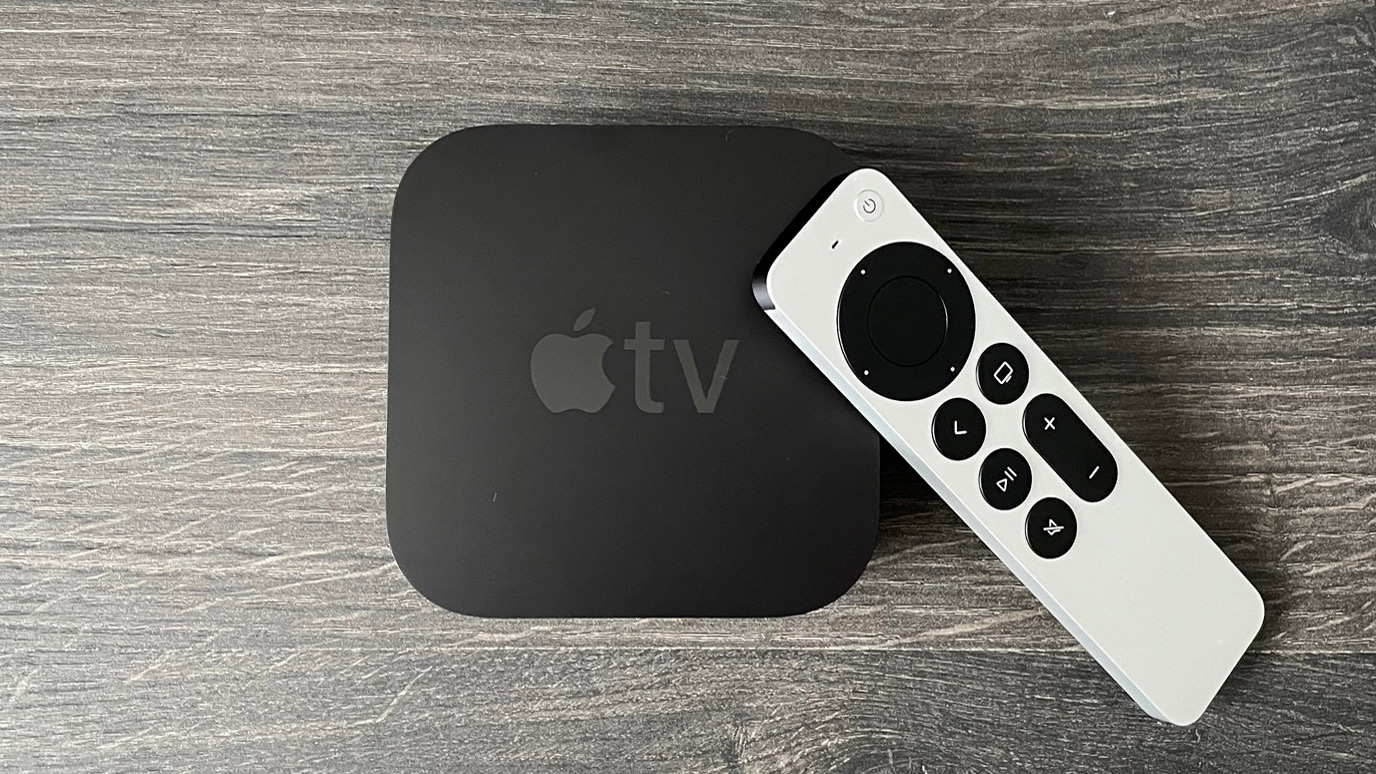
Reasons to buy
Reasons to avoid
The Apple TV 4K (2021) is a slick streaming device, which can play 4K video in HDR and Dolby Vision. It also supports high-frame-rate HDR to make fast action and sports look smooth and clear. During our testing, we felt that the new A12 processor definitely ups Apple's game here, with improved pictures and power for TV and games alike (great for Apple Arcade subscribers who like playing in their living room).
The revamped Siri remote is also a pleasure to use, and there are plenty of small but handy features, such as multi-user support and the ability to tweak your TV’s color balance automatically. In our review, we wrote: "If you watch a lot of video that features fast-moving action, for example sports, then the high-frame-rate capability of the Apple TV 4K (2021) will ensure that your viewing experience is super-smooth."
There’s no denying it’s expensive. However, it’s more than just a way to watch movies and TV shows, doubling up a smart hub with Thread smart home technology that enables your smart home gadgets from different manufacturers to work together more seamlessly.
There are some worthy upgrades here, but the Apple TV 4K 2021 doesn't do much different compared to the previous model. So if you're still sporting the 2017 iteration, there's not much impetus to get the newest version. The only game-changing difference is the new Siri Remote, though it's available to buy separately, meaning you don't need to get a whole hardware refresh to experience the benefit.
Read our full Apple TV 4K (2021) review
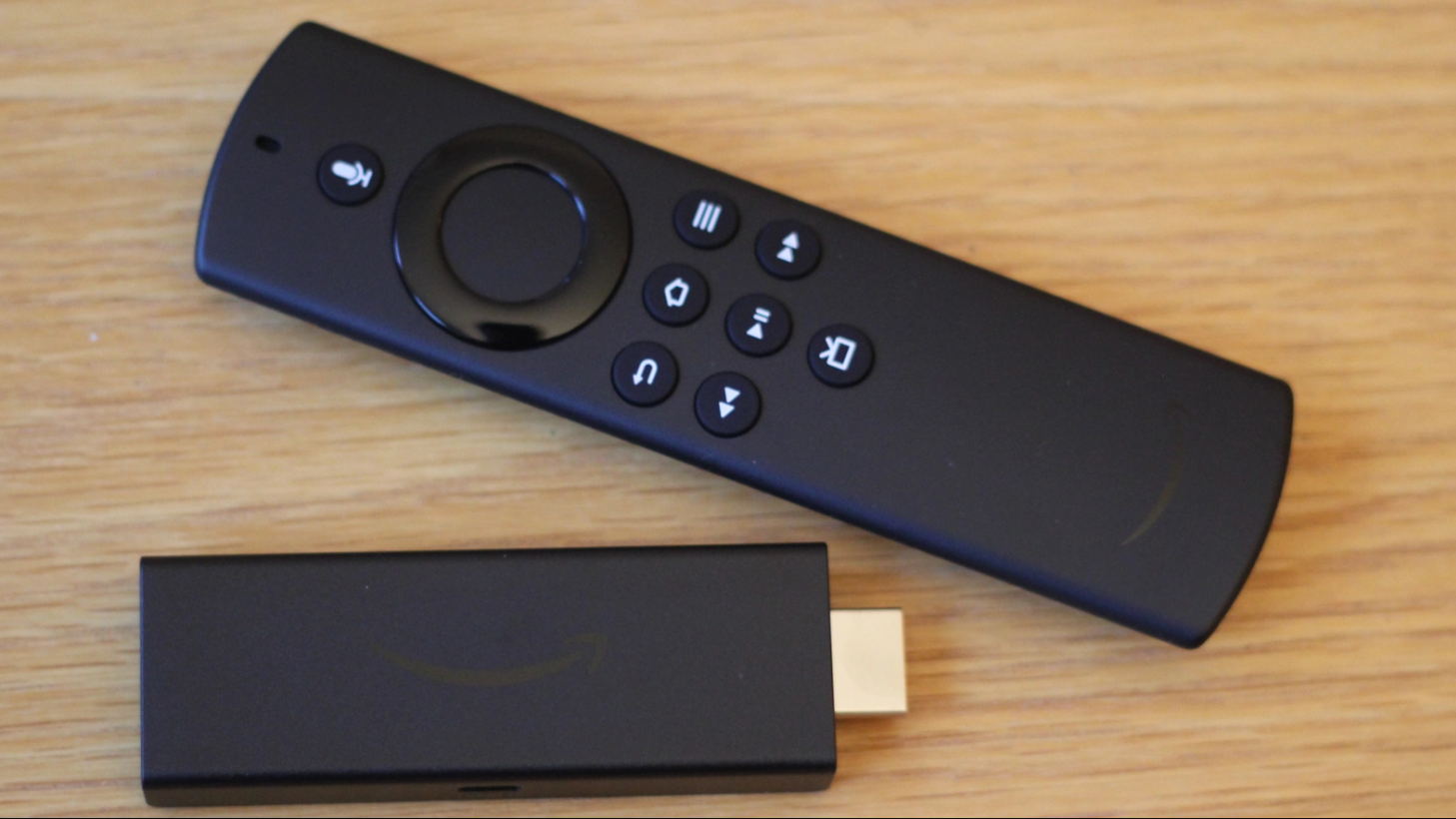
Reasons to buy
Reasons to avoid
The Amazon Fire TV Stick Lite is a smart buy for those on a budget. But at a lower price than many rivals on the list, you need to be willing to accept some of its compromises compared to the Fire TV Stick (2020) or Fire TV Stick 4K.
This HD streamer won't offer sparkling 4K detail, but you do get the basics of HDR / HDR10+ support, as well as 60fps playback for smooth action in a movie blockbuster or sports match. During our testing, we noticed the the Quad-core 1.7 GHz processor feels like a significant step up from the 1.3 GHz processor used in the 2nd-generation Fire TV Stick, too.
You are sacrificing volume controls and AV controls on the remote for the lower price as well. However, this isn't irregular for streamers at the budget end of the scale and you may not even notice they're missing.
Less forgivable is the at-times domineering presence of Amazon-owned or Amazon-affiliated content across the Fire TV operating system, including ads for Audible subscriptions on every menu pane. If you're a Prime subscriber, however, this should be less of an issue for you.
Read our full Amazon Fire TV Stick Lite review
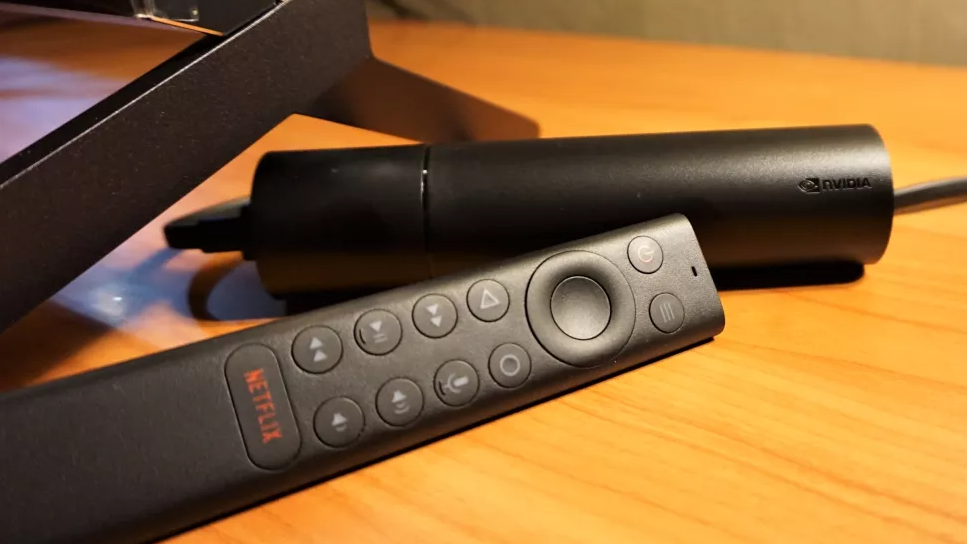
Reasons to buy
Reasons to avoid
At three times the cost of entry-level 4K HDR streaming players, the Nvidia Shield TV isn’t cheap, but it’s an incredibly powerful streaming player thanks to its cutting-edge AI upscaling tech and its support for both HDR10 and Dolby Vision content. With it, you’ll also get the revamped Shield remote and the latest version of Android TV, which serves as a gateway to Nvidia’s game-streaming service, Geforce Now.
But the feature that puts it miles ahead of the competition is Nvidia's new AI upscaling feature—it's one of the coolest features in any streaming device right now. It's powered by a neural network that has been 'trained' using thousands of hours of footage and which can hugely sharpen content, making HD content from the last 20 years look like it was shot earlier this year with a 4K video camera. It's wild.
What was the result when we started streaming? In our review of the Nvidia Shield we wrote: "In our time with the new Shield we watched a multitude of content, everything from run-of-the-mill videos on YouTube to HD TV shows and some spectacular-looking Dolby Vision content from Netflix, all of which looked dazzling on the TCL 6-Series Quantum that’s currently sitting on our test bench. "
It has a few limitations—notably it doesn't offer Apple TV, and it costs a bit more than a Roku Streaming Stick—but you get what you pay for here. It's worth mentioning that the Nvidia Shield TV Pro model adds an additional 1GB of added RAM and a larger hard drive, too, though you're be forking out a bit more cash for the premium model.
Read our full Nvidia Shield (2019) review
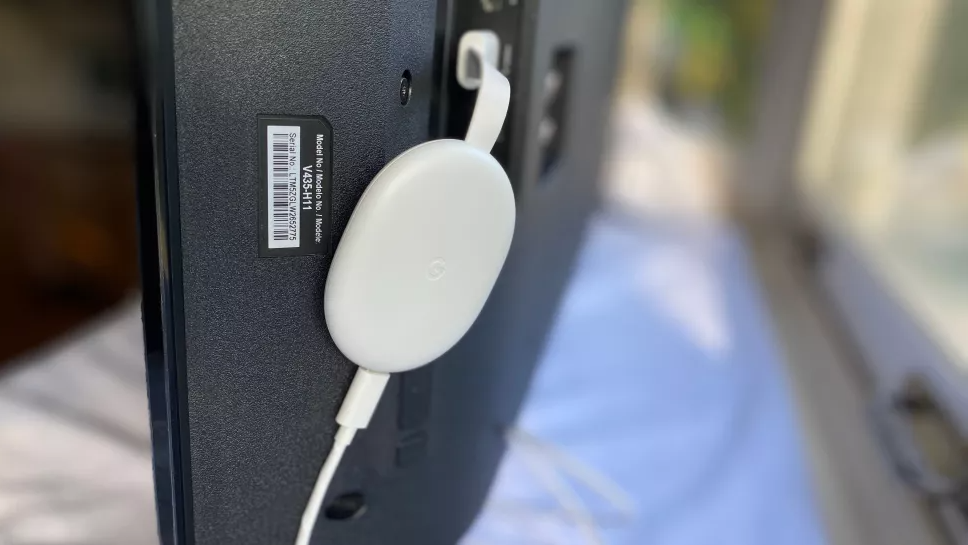
Reasons to buy
Reasons to avoid
Google's Chromecast with Google TV (2020) is a revelation—it fixes something that wasn't broken, and improves a nearly perfect technology in a tangible way. And it's all thanks to the remote and Google's 'new' software, Google TV. Combined, the two offer a massive uptick in usability over previous Chromecasts that required you to use your phone or tablet to Cast content rather than giving you an on-screen interface to interact with.
Now that Google has added a dedicated TV interface that you control with a remote, you have instant access to most of the major streaming services, including Disney Plus, HBO Max and even the streaming app of its biggest competitor, Amazon Prime Video. On top of that, there are a number of apps that have been carried over from Android TV, Google TV’s predecessor, that bring games and productivity apps to the streamer.
The result is a retooled streaming device that might resemble its predecessors, but which offers a whole new experience that’s more user-friendly for folks who are used to using a remote control and an easily navigable interface. The classic Google Cast functionality is always straightforward and simple to use, too, and works across literally thousands of apps.
In our review for the Google Chromecast with Google TV (2020), we wrote: "If you're looking for a cheap, easy-to-use streaming device then the Chromecast with Google TV is a fantastic choice. We've always felt Chromecast was easy to use, but now that it has a remote even non-techies can enjoy Google's affordable, fast streaming device."
Read our full Chromecast with Google TV review
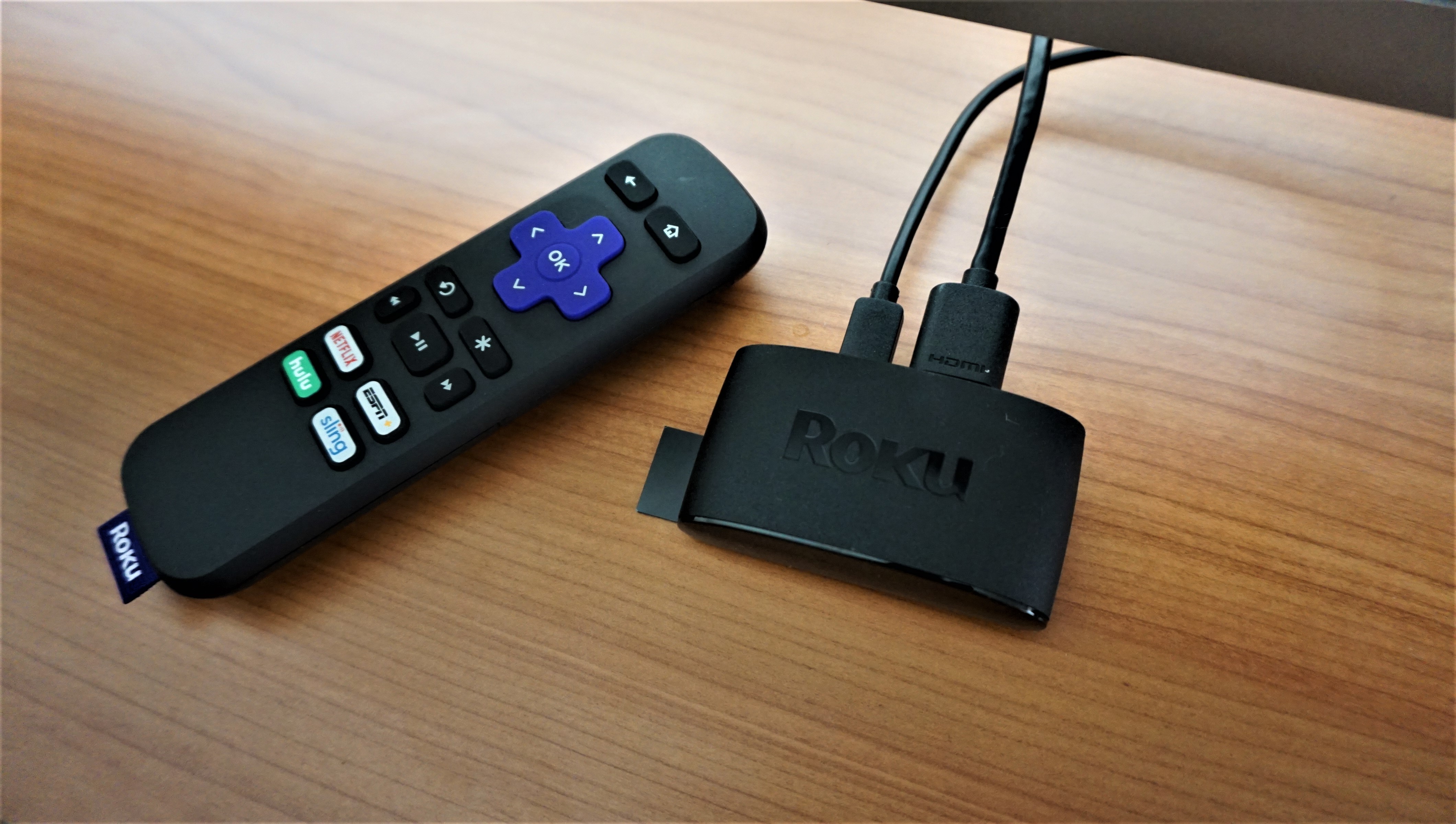
Reasons to buy
Reasons to avoid
The Roku Express is a marvel of a streaming stick. While it's capped at Full HD streaming, it still packs in a huge range of streaming apps on the excellent Roku platform at an incredibly inexpensive price. In our review we called it "one of the easiest to use products on the market".
The Roku remote is quite iconic these days: nowhere near as sleek as the Alexa Voice Remote that ships with the Amazon Fire TV Stick, but pleasingly straightforward in its own way, featuring chunky and highly visible buttons. The Roku remote was featuring dedicated shortcuts to key apps long before Amazon, too.
We can't stress enough how simple it is to navigate the Roku OS, too—there's a reason it's been ported over to TCL Roku TVs and Hisense Roku TVs alike, with well-organised tile icons for easy browsing, as well as a free ad-supported Roku Channel platform.
For a quick, cheap and easy-to-use dongle to get you started in the world of streaming, you can't go wrong with the Roku Express. Of course, if you like the look of the Roku Express but can't bear to settle for HD streaming on your 4K TV, you can check out the Chromecast with Google TV in our guide above or the Roku Express 4K+ (2021) below.
Read our full Roku Express (2019) review
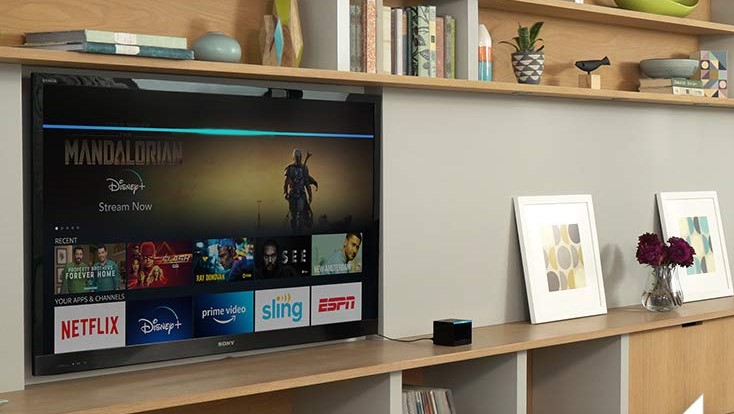
Reasons to buy
Reasons to avoid
While it can't match the AI upscaling of the Nvidia Shield or the usability of the Apple TV 4K, the second-generation Fire TV Cube is, by far, our favorite Amazon streaming device. It's better in so many ways than the Amazon Fire TV Cube that was released in 2017, and every single Amazon Fire TV box before it.
By packing in the smart functionality and speakers of an Amazon Echo, it's a versatile smart speaker as well as competent media player and streamer. For the 2019 version of the Cube, the processor upgrade and inclusion of Dolby Vision are great new additions and, in spite of a few shortcomings, help to solidify the Cube's spot as one of the best streaming players to be released this year.
What about streaming? During our testing, we were extremely impressed with it. We wrote: "The original Fire TV Cube used a Quad core ARM Cortex-A53 1.5GHz CPU, Mali-450 MP3 GPU and Amlogic S905Z SoC to produce stunning visuals and fast load times throughout the OS, but that's been upgraded to an ultra-powerful hexa-core processor that can play Dolby Vision and 4K Ultra HD content at up to 60 fps."
Yes, technically speaking you could do almost everything the Fire TV Cube does with an Amazon Echo Dot and Amazon Fire TV Stick 4K, but the hexacore processor-powered box moves faster and creates fewer frustrations. It's a cliche to say it, but the Fire TV Cube is greater than the sum of its parts.
Read our full Amazon Fire TV Cube (2019) review
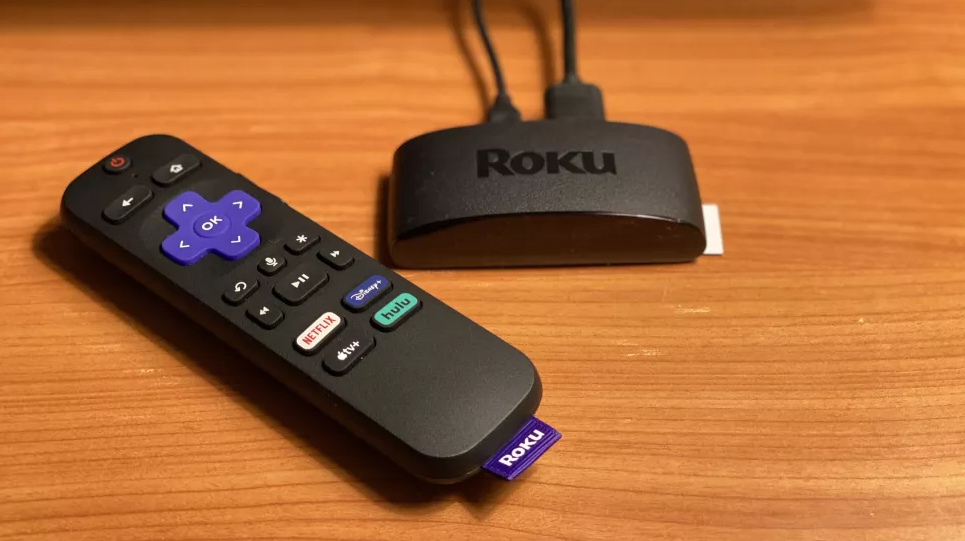
Reasons to buy
Reasons to avoid
For us, the Roku Express 4K+ (2021) is proof that if you wait long enough for tech to become more popular, you can buy it a much lower price. This was the case with SSDs and USBs and now the same is true for 4K HDR streaming devices.
We were disappointed to find that there’s no Dolby Atmos support or Dolby Vision support here, two high-end formats for spatial audio and HDR respectively that other devices on this list have, like the Apple TV 4K and the Nvidia Shield TV (2019). But then again, you're getting a lot of the best features of streaming devices for a very low price.
The Roku Express 4K+ does offer 4K HDR streaming at up to 60 frames per second over HDMI 2.0b with support for HDR10+, which we rated in our review. We wrote: "Even with only 40Mbps, streams buffered quickly and remained at 4K HDR quality for the entirety of our streaming sessions. That’s no guarantee you’ll get the same results, but it’s a good indicator for us that the Roku Express 4K+ is as good as the Roku Ultra at holding a connection."
We think it's best to consider the Roku Express 4K+ as Roku’s answer to the Amazon Fire TV Stick 4K and Chromecast with Google TV in that it’s affordable, has all the same streaming apps and it comes with a remote. During our testing, we could tell it was a budget streaming stick. But we did love how easy it was to use. The interface is easy to navigate, and the four quick launch buttons on the remote should take you directly to the most common ports of call.
You'll find much better streaming devices in this list. But, if you simply want a great deal on a solid 4K HDR streaming device the Roku Express 4K+ has you covered.
Read our full Roku Express 4K+ (2021) review
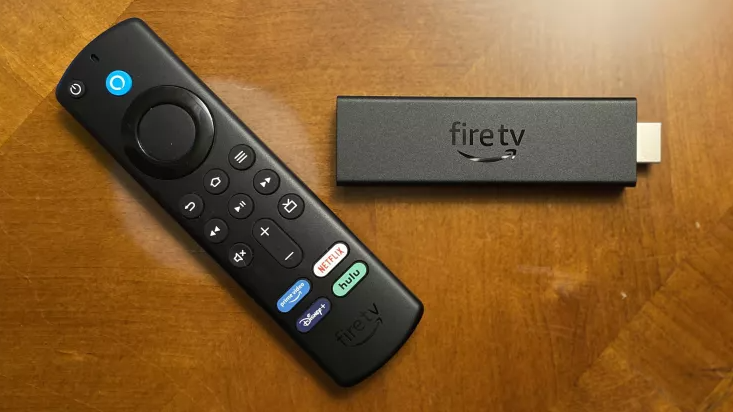
Reasons to buy
Reasons to avoid
The Amazon Fire TV Stick 4K Max pushes the streaming stick form factor to its apex, offering faster performance and support for the latest Wi-Fi standards. If you're looking for an Amazon device and want the best of the best, we think this is the top streaming stick for you.
While a lot of work has clearly been done under the hood to speed up performance and responsiveness in Amazon's latest streaming stick, during our testing we were disappointed to find the interface remains the same as previous years, and focuses broadly on Amazon’s key streaming service, Amazon Prime Video. As you might expect, this means it's a fantastic choice for Amazon Prime members, but a less appealing one if you don’t want to shell out for Amazon’s all-in-one subscription service.
The good news is that video streaming is only half of what a Fire Stick can do. It’s also able to keep track of your smart home devices and supports Amazon’s Luna game streaming service—making it a great rival to Google’s Chromecast with Google TV.
In our review, we also noted this is a device that will fare well in the future. We wrote: "With more memory and a Wi-Fi 6 antenna alongside support for all the latest AV standards, the Amazon Fire TV Stick 4 Max is well-equipped for the future and should be the last streaming stick you’ll need for the next five-plus years."
This streaming device isn't absolutely flawless and the limited advertising built into the interface might (rightly) annoy some folks. But, for anyone who loves Alexa, shops with Prime and is interested in Amazon’s experiment in game streaming, the affordable Amazon Fire TV Stick 4K Max is a triple threat.
Read our full Amazon Fire TV Stick 4K Max review
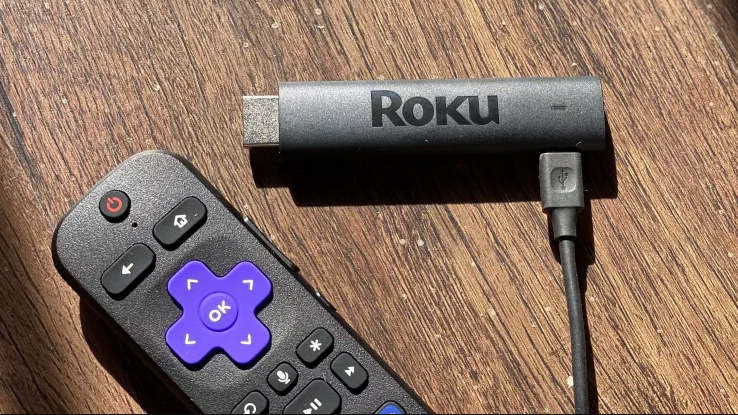
Reasons to buy
Reasons to avoid
The Roku Streaming Stick (2021) isn’t quite the massive overhaul we were expecting for Roku’s popular mid-range streaming stick. However, it does offer some nice upgrades like Dolby Vision and HDR10+ as well as a new processor that should speed up the startup process.
During our testing, we found that its faster processor means that apps will load faster and switch seamlessly, while the improved Roku mobile app is more helpful when you’re not right next to your streaming stick. Last but not least, the Stick’s unique selling point is longer Wi-Fi range and that remains intact and as functional as ever.
However, there are a few sticking points worth mentioning. For one, this is still the same ol' Roku that you remember from five years ago. The UI is practically unchanged outside of a few sections, and you'll still have to individually open every app to see what new shows and movies are available. Considering that similarly-spec'd devices in this guide, like the Chromecast with Google TV, are the same price, that's a bit of a bummer, but it doesn't prevent the Roku Streaming Stick from being a rock-solid value.
Overall, if you want a new Roku streaming device to speed up your aging smart TV or just want a reliable streaming stick that will get you through the next few years before your next big purchase, the Roku Streaming Stick 4K (2021) has you covered. That's why we often recommend it for those new to TV streaming. In our review, we wrote: "For first time buyers and folks looking to upgrade their first- or second-gen Roku devices, the new Roku Streaming Stick 4K is a very good value, offering modern specs and formats at a great price."
Read our full Roku Streaming Stick 4K (2021) review
How to choose the best streaming device for you
A few years ago, there weren't many streaming devices to choose from. You picked the brand you preferred from Google or Amazon and went with their latest streaming stick. These days, things are much more confusing. Not only are there more brands to consider, but there are updated devices each year alongside different versions of these devices that offer more or less features.
With that in mind, to choose the best streaming device for you, there are a few key things to consider. The first is the brand. Because many of the top streaming sticks offer some kind of integration with other products it often makes sense that if you have a lot of devices from one brand to get your streaming device from them too.
This is especially the case if you're talking about the Apple TV 4K or one of Amazon's streaming sticks. Not only will devices from the same company work more intuitively together, but you might unlock additional features.
The next consideration is price. Luckily, most of the brands in this list offer up a newer, more advanced device for those who don't mind paying a premium for performance. But you can also opt for the older version or a marginally less capable version, like Amazon's Fire Stick Lite, for example.
Obviously, you might be sacrificing some high-end features for a cheaper model, but if you're new to streaming, just want to give your TV a boost or need a stick for a second TV, there's nothing wrong with going for a budget streamer.
Another consideration is how you want to control your TV once it's filled with smart apps. Many of the devices on this list come with a remote, so that's an easy way to move through menus. But some don't have a remote, or you need to buy it extra. For those wedded to voice commands, this won't be an issue. Others might miss the feel and experience of a remote.
There are other considerations, like high-end features, processors and design, but thinking about the brand, your budget and the way you want to use your TV are the best places to begin.
What is a streaming device and how does it work?
Essentially, a streaming device (or streaming stick) allows you to stream (i.e. play) entertainment content – be it movies, TV shows, music, photos or sports – straight to your TV from a third-party provider, typically through a HDMI port.
Which apps you’ll gain access to of course depends on the streamer, and it’s also worth noting that support for a particular service doesn't mean a subscription is thrown in by default – if you want to watch Netflix, for instance, you’ll still have to pay for it separately (though as mentioned above, some products come with deals on certain streaming services).
What is the point of a streaming stick if you have a smart TV?
While it’s true that many of today’s smart TVs come pre-installed with a wide variety of entertainment apps, external streaming devices will almost always improve the user interface of a given app.
Amazon’s Fire Stick, for instance, gives users access to more content with more control than the standard Amazon TV app, with other products in the Amazon line even coming equipped with Alexa – giving you the extra option of controlling your TV with your voice.
It’s also rare that a smart TV will come loaded with access to every streaming service out there. Apple TV Plus, for instance, seldom comes as a pre-installed app on standard smart TVs, hence the need for Apple's 4K HDR streaming box, while Panasonic TVs don’t support Disney Plus.
What are the best streaming device apps?
As for the best TV streaming service, it depends on your region, though the main players like Netflix, Amazon Prime Video and Disney Plus still sit at the top of the pile when it comes to their selection of movies and TV shows.
Still, burgeoning platforms like Apple TV Plus are improving month-by-month, with new series – like Ted Lasso and Mythic Quest – proving must-sees, while YouTube mustn't be forgotten as an ever-excellent source of entertainment.
How we test streaming devices
Over the years, we've tested many streaming devices. This means we know what to look for and what makes a streaming stick, dongle or dedicated media player stand out from the rest.
The first thing we, obviously, consider is the streaming experience itself. We wanted to be sure that it's easy to navigate to your favorite apps and services and, once you've found them, the picture and performance is solid. There are many different devices in this guide, some with added features, some at bargain prices. But all of them are relatively simple to use and performed well in terms of streaming.
Design and set-up is all part of the experience, too, so we were sure to carry out our tests as if we were new to streaming devices, paying particular attention to how the streamer connects to your TV and whether the set-up process involved any superfluous steps that might be daunting for a first-time user. The devices in this guide offer varying degrees of ease in this respect, but all should be simple enough to understand and can be set up in under half an hour.
We were interested in features, like Dolby Vision, but more than anything we wanted to weigh up these added extras against the price. If there's modern additions, the price could be higher. If you're getting a basic experience but it performs remarkably well, we'd class that as an excellent value streamer.
Finally, we paid close attention to upgrades. Many of the streaming devices in this list are new and updated versions of media sticks that came before them. Some have notable upgrades, which we were keen to shout about. Others only feature small upgrades, but ones that could make a significant difference to your experience, like the Apple 4K TV's new Siri remote, so we considered that a decent upgrade on its predecessor.
Ultimately, we were looking for the perfect package. A streamer that offers a good user experience and good streaming that feels like a worthy enough upgrade on the devices that came before it.
Today's best streaming device deals
Sign up for breaking news, reviews, opinion, top tech deals, and more.

Henry is a freelance technology journalist, and former News & Features Editor for TechRadar, where he specialized in home entertainment gadgets such as TVs, projectors, soundbars, and smart speakers. Other bylines include Edge, T3, iMore, GamesRadar, NBC News, Healthline, and The Times.